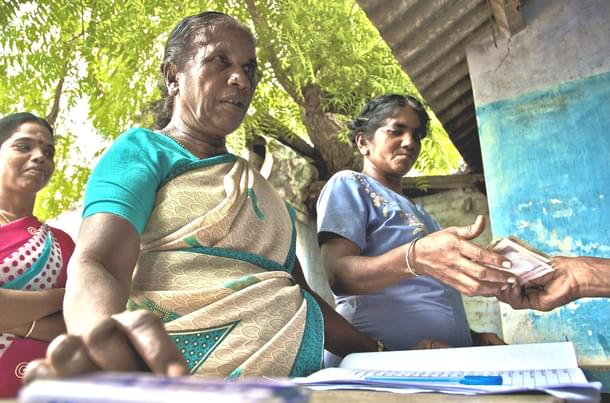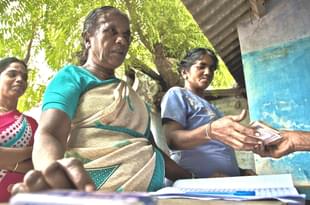Ideas
Citizenship Amendment Bill: What Happens To The Stateless Indian-Origin Tamils From Sri Lanka?
S. Kaushik
Dec 07, 2019, 04:57 PM | Updated 05:06 PM IST
Save & read from anywhere!
Bookmark stories for easy access on any device or the Swarajya app.


The Citizenship Amendment Bill of 2016 sought to end the statelessness of people belonging to Buddhist, Christian, Hindu, Jain, Parsi and Sikh community, who fled to India from Afghanistan, Bangladesh and Pakistan facing religious persecution.
The bill which was passed by the 16th Lok Sabha lapsed after its dissolution. On 4 December 2019, the cabinet cleared the Citizenship Amendment Bill 2019 and is all set to be introduced in the Parliament next week.
The bill seeks to fulfil the BJP’s commitment in the 2014 manifesto that pledged to confer citizenship to persecuted Hindus seeking refuge in India. Granting citizenship only to Hindus would have been unconstitutional.
Hence, the bill included other non-Muslim communities considering the fact that the neighbours mentioned in the bill are countries where Islam is the state religion.
However, the bill in its current form does not provide for the possibility of Indian-Origin Tamil refugees living in India obtaining citizenship.
The Indian-Origin Tamils are the descendants of Tamil labourers who were brought to Sri Lanka from different parts of Tamil Nadu by the British to work in plantations. They are mostly Hindus and belong to the Most Backward Class and Dalit communities. Soon after Independence, Sri Lanka rendered them stateless by enacting the Ceylon Citizenship Act of 1948 and the Indian and Pakistani Residents Act of 1949.
Later the Sirimavo – Shastri Pact and the Gandhi – Sirimavo Pact of 1964 and 1974 respectively reduced them to mere commodities to be shared between the two countries. When communal violence broke out in 1977, the Indian Tamils migrated to the Northern Province.
Subsequent riots and wars arising out of ethnic and religious persecution made the Tamil population flee Sri Lanka. Indian-Origin Tamils never subscribed to the idea of Tamil Eelam considering their geographical placement right at the centre of the island surrounded by Sinhalese.
As a result, they faced the brunt of both the Sri Lankan army and the LTTE and were the worst affected in the conflict.
When the refugees started arriving on the shores of Rameswaram since the start of the carnage in 1983, India, which is not a signatory to the refugee convention, welcomed them with open arms empathizing with their Tamil brethren.
The Indian-Origin Tamils were one of the earliest to arrive. Among them, many of them were part of the two pacts of 1964 and 1974 that had been conferred Indian citizenship. But they were registered as refugees on arrival.
Today, there exists no distinction in official documents between the India-Origin Tamil and Sri Lankan Tamil refugees in camps leave alone the distinction between those who were covered and not covered under the pact.
Over the years, the Centre and state governments have provided them with various welfare measures for them to lead a secure and dignified life. Ration and cash doles are provided to refugees staying within camps. Refugees are also allowed to work outside the camps to supplement their income.
However, refugees are not eligible for government employment. The private sector also hesitates to employ a person if they come to know that they are from refugee camps. It becomes difficult for them to lead a meaningful life in India.
In 2014, a pilot study was conducted among camp and non-camp refugees by Tata Institute of Social Sciences, Danish Refugee Council and Adventist Development and Relief Agency India to explore durable solutions for Sri Lankan Tamil refugees in India.
The sample size of this study was 520 of which 368 were from camps and 152 were non-camp refugees. The ratio of Indian-Origin Tamils and Sri Lankan Tamils was 40:60 respectively. Around 67.9 per cent of the total respondents living in camps (both Indian-Origin and Sri Lankan Tamils) preferred local assimilation as a durable solution.
Among the Indian-Origin Tamils, 78.15 per cent preferred local assimilation while 16.56 per cent preferred voluntary repatriation. Those having a UG/PG degree are clear about taking their roots in India. Irrespective of the level of education, a large number of people prefer local assimilation.
Among respondents who prefer local assimilation (both camp and non-camp), 80 per cent of those living in camps recorded that they require Indian citizenship for their children and expressed their unwillingness to return to Sri Lanka. Though this is a sample survey and not a census, it does shed light on the aspirations of the Tamil refugees living in India.
The Citizenship Amendment Bill 2016 which was referred to a Joint Parliamentary Committee headed by Rajendra Agrawal, submitted its report on 7 January 2019 to the Parliament. The report points out that some Members proposed to include Sri Lanka, Myanmar and Tibet along with Afghanistan, Bangladesh and Pakistan in the bill.
However, the Ministry of Home Affairs justified the non-inclusion of those countries citing a Standard Operating Procedure (SOP) dated 29.12.2011 to deal with foreign nationals claiming to be refugees.
Under this SOP, a foreign national can stay in India on Long Term Visa if it is proved that he has been a victim of oppression in his native country on account of his caste, religion, nationality, etc., from countries like Sri Lanka.
It is logical if this provision is made applicable to Tamil refugees of Sri Lankan origin who wish to stay in India but extending the same provision to Indian-Origin Tamil refugees would be injustice.
Indian-Origin Tamils have the right to claim citizenship and be treated on par with Hindu refugees from Afghanistan, Bangladesh and Pakistan. They satisfy the necessary criteria under Section 5 and Section 6 of the existing Citizenship Act that provides for citizenship by registration and naturalization.
On 20 November 2019, the Minister of Home Affairs Amit Shah, categorically stated in the Rajya Sabha that the National Register of Citizens would be extended across India. He also mentioned that the NRC should not be mixed with the Citizenship Amendment Bill which seeks to provide citizenship to illegal immigrants from Pakistan, Afghanistan and Bangladesh belonging to Hindu, Christian, Sikh, Parsi, Jain and Buddhist communities.
However, it is not possible to look at both in isolation. The citizenship law provides the frame of reference for the NRC. If the NRC is extended to Tamil Nadu, it should take into consideration the aspirations of Indian-Origin Tamil refugees.
Hence, for a hassle free pan-India NRC exercise, it is important to have a legal framework that defines not just citizens but also non-citizens, illegal immigrants, refugees and stateless people.
It is high time the Indian-Origin Tamil refugees living in India are excluded from the ambit of illegal immigrants. The new Citizenship Amendment Bill that is to be introduced in the Parliament should seek to address these lacunae in the erstwhile bill.
The Indian-Origin Tamil refugees, especially the younger generation, are not comfortable with the prefix ‘Indian-Origin’ and preferred to be known as Malayaha Tamils. However, I am bound to use the term Indian-Origin to add merit to their plea for Indian citizenship.
Justice G.R. Swaminathan of the Madurai Bench of Madras High Court, to a writ petition filed by 65 Indian-Origin Tamil refugees, delivered a favourable judgement on 17 June 2019, ordering the Government of India to consider the applications for conferring Indian citizenship to Indian-Origin Tamil refugees.
India is the only country they are familiar with and share no links with Sri Lanka. Various political parties rake up the Tamil refugee issue for their own political gain by giving promises that cannot be kept but none of the MPs from Tamil Nadu have bothered to have a debate on the bill centred on this aspect.
A permanent solution to end their statelessness remains lingering. It is the need of the hour to put an end to the woes of the Indian-Origin Tamil refugees by conferring Indian citizenship on them through the Citizenship Amendment Bill 2019.
The author is a post graduate student of TISS Mumbai and the Deputy Director of Tamilagam Research Foundation





